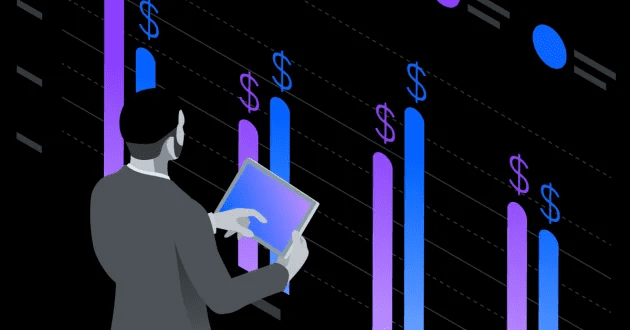Blogs

7 Shocking Things That We Learned At Black Hat USA 2021
August 17, 2021
7 Common Email Security Myths You Should Stop Believing In
August 31, 20217 Key Takeaways From Cost of Data Breach Report 2021
Do you know how much a data breach costs? According to the cost of data breach report 2020, the average cost of data breach stood at $3.86 million. A study by CIO Australia shows that there is no fixed answer. Every data breach case is unique and the cost varies. The cost of a data breach can be anywhere between $1 and $6 million and can affect your company’s reputation, revenue, and customer retention.
Do you know how much a data breach costs? According to the cost of data breach report 2020, the average cost of data breach stood at $3.86 million. A study by CIO Australia shows that there is no fixed answer. Every data breach case is unique and the cost varies. The cost of a data breach can be anywhere between $1 and $6 million and can affect your company’s reputation, revenue, and customer retention.
The figure has jumped by 10% since then to reach $4.24 million in 2021, according to IBM cost of the data breach report 2021. When you throw remote work into the mix, the cost goes up to $4.96 million. Interested in learning more about the cost of data breach report 2021?

In this article, you will learn about seven key takeaways from the cost of data breach report 2021.
7 Key Takeaways of Cost of Data Breach 2021
Here are seven key takeaways from the cost of data breach report 2021
1. Automation
According to the cost of data breach report 2021, the number of organizations that have partially or fully embraced automation has grown from 59% in 2020 to 61% in 2021. Some of them are even experimenting with AI-based security systems and others have implemented them partially. All this clearly points towards increased automation adoption amongst enterprises as far as cybersecurity is concerned. This will not only take the burden off the shoulders of your existing cybersecurity teams but can also assist enterprises in overcoming talent shortfall in the cybersecurity industry to a certain degree.
2. Zero Trust Approach
The cost of the data breach report 2021 also highlighted the importance of adopting a zero-trust approach. According to the report, the average cost of a data breach for organizations that have adopted a zero-trust approach is $3.28 million while the average cost of data breach for organizations without a zero-trust approach is 42% higher at $5.04 million. Despite this, only 35% of organizations have adopted a zero-trust approach.

1. Hybrid Cloud Model
As more and more businesses jump on the hybrid cloud bandwagon, we will see the cost of data breaches come down. That is exactly what the cost of the data breach report 2021 suggests. According to the cost of data breach report 2021, the average cost of a data breach is much lower for a hybrid cloud than the public cloud. In fact, the average cost of a data breach is $1.19 million less as compared to public cloud data breaches, which translates into a 28.3% dip in average costs.
2. Security AI
One of the biggest data breach cost mitigation factors is AI-based security. Enterprises harnessing the power of security automation managed to cut down the cost of data breaches by $3.81 million. The average cost of data breaches incurred by businesses equipped with AI-based security is $2.90 million. On the flip side, the average cost of a data breach for businesses with no AI security in place is $6.71 million, which is 79.3% more than businesses with cybersecurity automation.
3. Cloud Modernization
Cloud modernization is the process of optimizing your applications to take full advantage of the cloud. Cloud modernization can reduce the response times in cases of a data breach. Organizations who have achieved a level of maturity with cloud moderation managed to contain a data breach quicker as compared to organisations that are in the early stages of cloud deployment. The mature organization took 77 fewer days as compared to organizations that are just starting their cloud journey.
4. Factor Analysis of Information Risk
Factor Analysis of Information Risk (FAIR) is a global standard for cyber risk modelling. When you combine it with threat intelligence, it can help enterprises evaluate the impact of financial risks by using projections. The cost of the data breach report highlighted how businesses in the financial sector can use factor analysis of information risk from sensitive data breaches.
5. Variation In Costs
The cost of data breach also varies based on a number of different factors such as countries, industries, attack vectors, size of the organisation and different types of records. The report analyzed 17 industries in 17 countries and found that the United States has the highest cost of a data breach at $9.05 million and the healthcare industry was at the top of the list based on the average cost of a data breach with an average cost of data breach touching $9.23 million.

When it comes to different threat vectors, compromised credentials (20%) are the most common followed by phishing (17%) and cloud misconfigurations (15%). The cost of a data breach also varies with the type of record. For instance, customer personal data is the most expensive and most commonly breached record, with an average cost of $180 per record.
What’s more, the cost of data breaches also fluctuates based on the size of data breaches. Large data breaches tend to cost more than smaller ones. The cost of data breach report showed that the data breaches where 50 million to 65 million records were compromised cost businesses $400 million while the data breaches where 1 million to 10 million records were compromised cost businesses an average of $50 million.
What did you learn from the cost of the data breach report 2021? Share it with us in the comments section below.
Featured Post
7 Cybersecurity Trends That Will Dominate in 2026
As we approach 2026, the digital landscape continues to evolve at an unprecedented pace, bringing both innovation and new threats. Cybersecurity has become a cornerstone of […]
Black Hat 2025: 10 Cool New Cybersecurity Products Announced At The Conference
Black Hat 2025 conference took place from August 2–7 2025 in Las Vegas, saw a wave of next‑gen security tools focused on AI, agentic systems, data […]
Alarming 5 Findings in IBM’s Cost of Data Breach 2025
Table of Contents 5 Key Takeaways from IBM’s Cost of Data Breach Report 2025 1. AI Is Both a Cybersecurity Ally and an Emerging Target 2. […]












